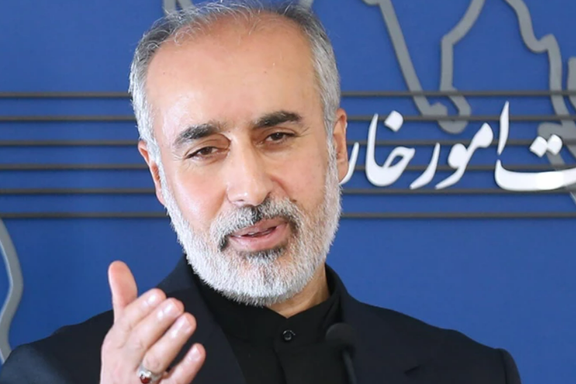Iran Says Too Early To Judge Nuclear Talks But Progress Made

The US has not replied to Iran’s latest response in the nuclear negotiations, but the talks are still on track to continue, the foreign ministry said Monday.

The US has not replied to Iran’s latest response in the nuclear negotiations, but the talks are still on track to continue, the foreign ministry said Monday.
In his weekly briefing with reporters in Tehran Nasser Kanaani, spokesman for the foreign ministry underlined that Iran had sent its response on time to the latest European Union proposal for a nuclear agreement, but the US has not responded yet.
Speaking about the delay in a US response, Kanaani said, “American government’s internal issues, such as pressure by radicals and the Zionist lobby on the government…will not deter Iran from pursuing its priorities.”
The Biden Administration faces resistance from most Republicans and some Democrats for trying to revive the 2015 nuclear accord known as the JCPOA. Recent charges by the Jusctice Department about Iranian agents trying to assassinate former Trump administration officials has not made the task any easier.
He gave a cautious response to a question about the success of the talks. “We can speak about whether the negotiations were fruitful once the European Union announces it has received a response from the Americans. So far, this has not happened,” Kanaani said.
He also urged the media and the public not to pay attention to unofficial accounts of the talks, “because the negotiations are sensitive and naturally, we should pass judgement based on the official views of the countries involved…”
Last week, leaks emerged from Tehran about considerable “concessions” Washington has made to Iran so far. On Sunday, the ad hoc spokesman of the negotiating team, Mohammad Marandi also gave an interview to a local paper claiming that Iran had “exceptional” results in the talks in the past one month.
“We were able to achieve huge progress in all areas, including guarantees, verification and sanctions issues, as well as issues related to the IAEA,” Marandi highlighted.
“So far, we had good progress,” Kanaani said, “but negotiations are a totality and there should be agreement on all issues. As long as there is no [overall] agreement, we cannot say we have reached a deal…although remaining issues in terms of percentage [of all issues] are small, but they are important…,” he said.
Washington has not responded to the specifics of the leaks from Tehran about Iranians getting most of what they wanted, but has dismissed talks of having made major concessions.
US President Joe Biden, British Prime Minister Boris Johnson, French President Emmanuel Macron and German Chancellor Olaf Scholz, the leaders of the four Western negotiating countries discussed the nuclear talks in a call on Sunday, that was apparently convened to discuss Ukraine.
“In addition, they discussed ongoing negotiations over Iran’s nuclear program, the need to strengthen support for partners in the Middle East region, and joint efforts to deter and constrain Iran’s destabilizing regional activities,” the White House announced.
The announcement gave no clue about a possible US response to the EU, but the emphasis on deterring Iran’s destabilizing regional activities was perhaps a sign to reassure regional allies, especially Israel that remains strongly opposed to the new agreement so far negotiated by the Biden Administration.